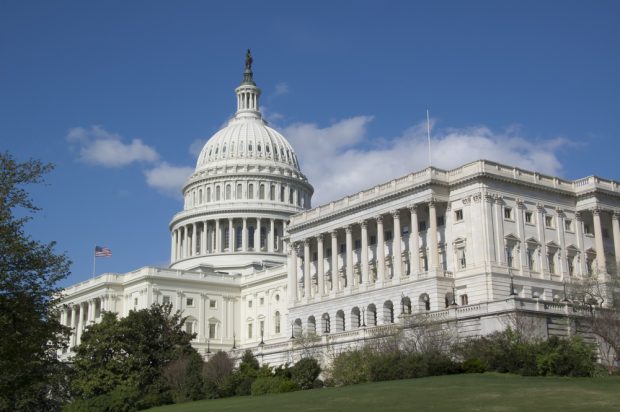 The U.S. Capitol Building.
The U.S. Capitol Building.
Senate appropriators will consider FY19 funding legislation Thursday that would provide the Community Development Financial Institution fund with $250 million—a $34 million increase from the House version of the same bill.
The $250 million is the same amount the program received in FY18.
Recommended For You
That funding level, part of the annual Financial Services spending bill, was approved at the subcommittee level Tuesday and will go to the full Appropriations Committee on Thursday.
The House has sent conflicting messages about the CDFI program. Initially, House appropriators provided $191 million, but the full Appropriations Committee boosted that funding level some $16 million.
At the same time, the House has passed legislation that would rescind more than $160 million already approved for the CDFI program.
That rescission was part of a larger $15 billion package requested by the Trump Administration. The administration has proposed killing the CDFI program, saying that private capital is now available to fund similar programs.
On Wednesday afternoon, the Senate rejected President Trump's $15 billion rescissions package. That bill would have recinded more than $161 million already appropriated for the CDFI program. The House had previously passed the measure.
However, credit union officials have been lobbying for continuation of the program.
"Certified CDFIs, including credit unions, are able to turn the awards and grants from the fund to leverage significant amounts of private and non-federal dollars in support of vital community investments," said CUNA President/CEO Jim Nussle.
And Michael Beall, chief strategic and advocacy officer with CU Strategic Planning, a consulting company that works with certified credit unions, emphasized the program's importance in a letter to appropriators.
The program "has been a significant partner for our credit union clients working to lend to small businesses, an effort that has resulted in the addition of more than 10,000 jobs to the economy," Beall wrote. He said the program assists in enabling credit unions to make small-dollar and auto loans, as well as mortgages to low and moderate-income families
While the Senate bill boosts funding for the CDFI program, the future of two legislative provisions being pushed by credit unions and contained in the House appropriations measure face an uncertain future in the Senate.
The House bill includes a provision that would delay the NCUA risk-based capital rule for two years. It also includes a provision that would place the CFPB under the annual appropriations process.
However, Senate Appropriations Chairman Richard Shelby (R-Ala.) said Tuesday that he and ranking committee Democrat Patrick Leahy of Vermont agreed to keep legislative riders out the annual funding measures in an effort to smooth their passage.
"We are not interested in poison pill riders," Shelby said on the Senate floor.
Leahy agreed.
"If we are going to succeed in moving this bill through the Senate, members on both sides of the aisle need to show restraint – as we did when marking these bills up in Committee – and refrain from offering controversial legislative matter or other poison pills as amendments," he said.
© Touchpoint Markets, All Rights Reserved. Request academic re-use from www.copyright.com. All other uses, submit a request to [email protected]. For more inforrmation visit Asset & Logo Licensing.






